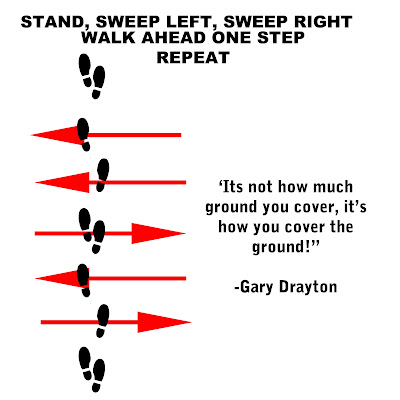I was going to pen this in a slightly glib manner, but after a bit of re-thinking, I figured that was the easy way out. And I am not known for taking the easy way out, ever! Tomorrow, when 2024 surfaces like a damaged U-boat, it will mark my 60th anniversary in the metal detecting hobby. I built my own primitive, feeble, beat frequency oscillator detector (BFO) out of spare parts in 1964 when I was little more than 13-years old. It was the best machine for finding flattened beer cans ever made and I've been beeping ever since. So, I feel I have a little skin in the game, enough to offer advice and criticism thereof. Just to set a baseline here, "So it begins again..." refers to the real fears long-time detectorists harbor as they realize thousands of metal detectors will soon be gifted to thousands of would-be hobbyists on December 25th. Their fears are usually borne out as the Social Media Metal Detecting Groups feel the surge immediately, as membership suddenly swells the day after Christmas and will keep on for several weeks after. Comments like "I always wanted to do this!" and "I'm NEW to the hobby and would like to learn more about it!" and hundreds of variations of this theme pour into the membership request slots for Administrators to ponder.
The really best comments that fill me with hope are from new users that want to learn more about the hobby, presumably and figuratively, and learn the best way to practice it. I salute those who are here on a mission of ethical and moral exploits in a hobby that has a dearth of both. The most important ethical point I can possibly make, from Matthew, in the Bible, "All things therefore whatsoever ye would that men should do unto you, even so do ye also unto them" Basically treat everyone with respect, and respect is doing what is right. Metal detecting in itself has the potential, like anything else, to do great good (returning lost items for folks) or great evil (damaging property, leaving holes and dug garbage everywhere) and you are the deciding factor!
As far as your new hobby goes it can be as simple as hunting a beach or park or as complex as hunting for battlefield relics or lost treasure at sea; And, like Doc says in "Back to the Future," it's whatever you want to make of it! The technical specs, operating procedures, additional tools and best practices can be found most anywhere on the world-wide web, as well as the worst practices, like disturbing war graves, or digging up a cemetery! This brings me to the greatest benefit you could take advantage of as a new player in this awesome hobby which would be to join a local metal detecting club. There you will find fast friends who share your interests, can help you "learn the ropes" hands-on, and mentor you through a hobby that will bring you years of health and enjoyment. Just remember, ethics come first, detecting second!
Good luck and happy hunting to you all!










